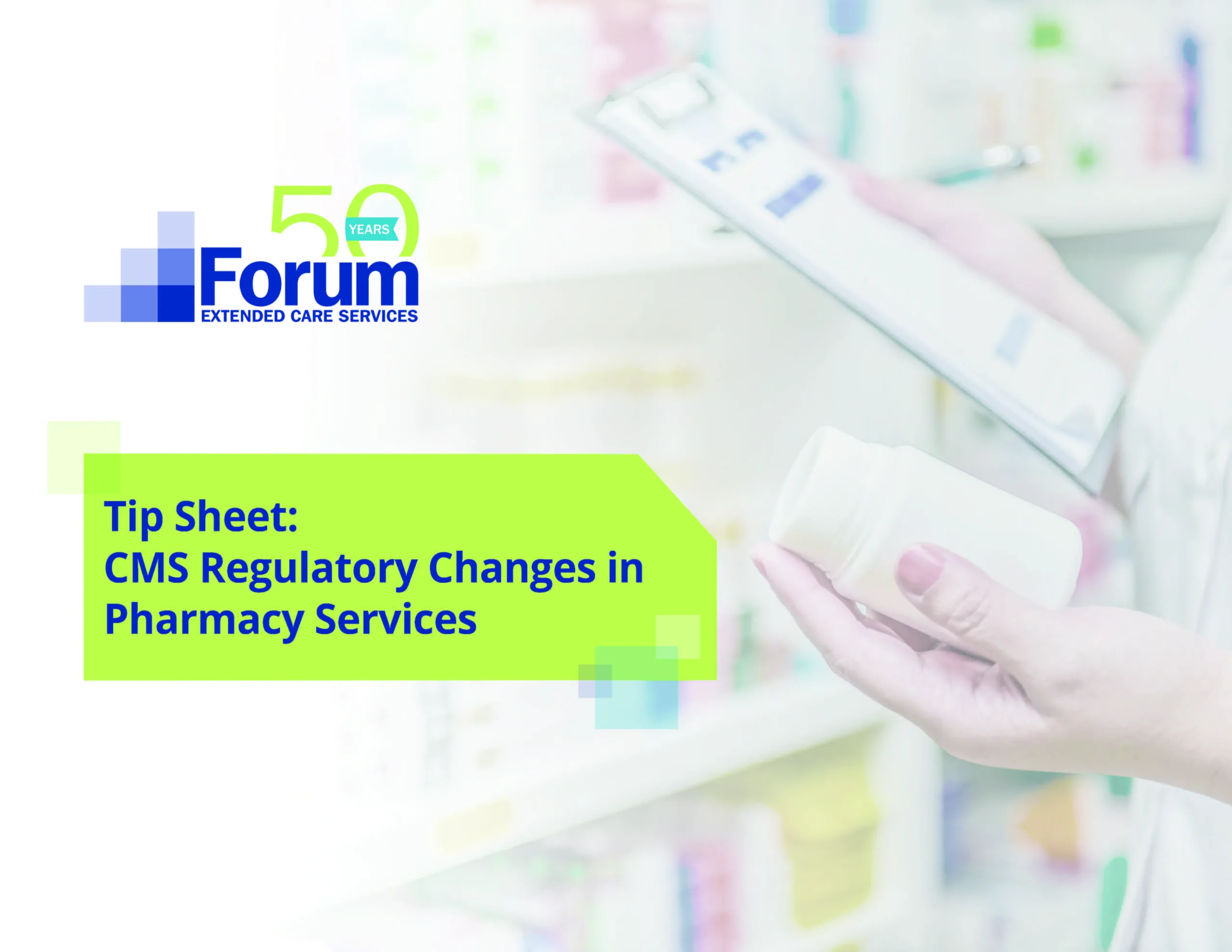Regulatory Guidance Changes Affecting Medications in SNFs Go Into Effect October 24
Although the Centers for Medicare and Medicaid Services (CMS) Phase 3 updated nursing home Requirements of Participation have been in effect since 2019, guidance was not released until the very end of June 2022, putting survey enforcement largely on hold until October 24.
Among the many revisions, the new guidance affects several medication-related topics. Long-term care pharmacies have been working with facilities to understand the implications of these changes, a summary of which follows.
- Drug Regimen Is Free from Unnecessary Drugs (F-757/F-758 Facility Compliance): Survey teams are directed to consider whether a facility is compliant with F-881, the tag for the Antibiotic Stewardship Program. Evidence of unnecessary antibiotic use could indicate that a facility is not implementing part or all of an antibiotic stewardship program.
- Fentanyl Patch Disposal (F-755 Facility Compliance): State and local laws may restrict flushing of pharmaceuticals, including fentanyl patches, which cannot be disposed of in common areas or resident rooms. Allows nursing homes to use drug disposal systems if they can show the system minimizes accidental exposure and diversion.
- Gradual Dose Reduction (F-755 Facility Compliance): Requirement added to ensure dose reductions occur in modest increments over an adequate period of time, to minimize withdrawal symptoms and monitor for symptom recurrence.
- Misdiagnosis Related to Antipsychotics (F-755 Facility Compliance): Additional language was included about potential for misdiagnosis of residents with conditions for which antipsychotics are an approved use, excluding the resident from the long-stay antipsychotic quality measure.
- Psychosocial Harm Evaluation (F-758 Facility Compliance): Requires evaluation of resident’s side effects of medication, including sedation, lethargy, agitation, mental status changes, or behavior changes.
- Substance Abuse (F-689 Accidents/Hazards/Devices): Added guidance concerning care plans for residents with substance abuse disorder (SUD), to assess risk and prevent or manage accidental overdose.
- Unnecessary Psychotropic/PRN Use (F-758 Facility Compliance): Guidance for psychotropic medication use has been expanded to include other medications that affect brain activity when documented use appears to be a substitution for another psychotropic medication rather than the original/approved indication.
CMS’s release also included guidance on new arbitration requirements; oversight of nursing home complaints and facility-reported incidents; improving consistency across state agencies in communications to complainants; and clarifying the “reasonable person” concept and examples across different severity levels.
